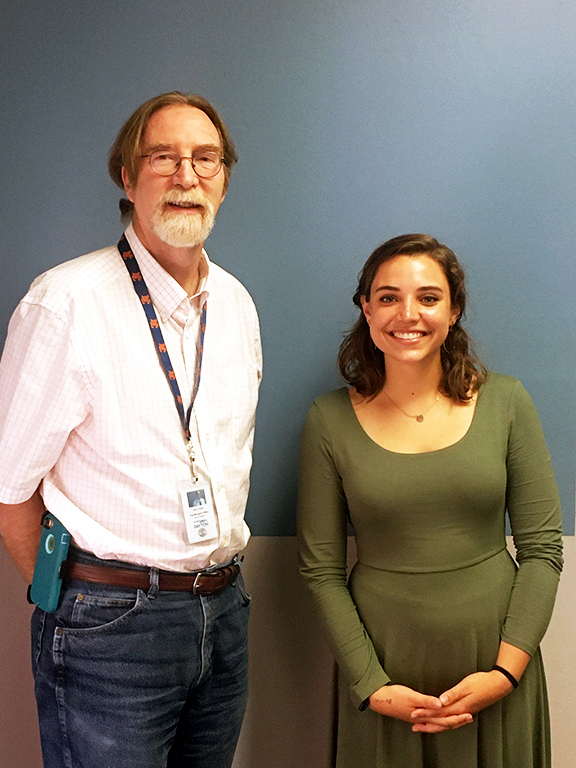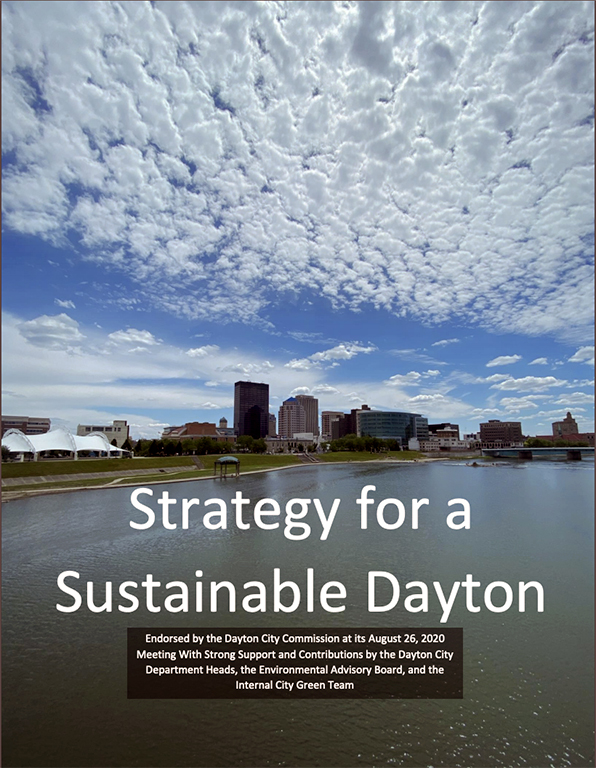Hanley Sustainability Institute

HSI graduate student Maloney helped craft Dayton's sustainability report
By Mark Gokavi
City of Dayton Sustainability Manager Mark Charles prefers the term sustainability specialist when it comes to Meg Maloney, a Hanley Sustainability Institute graduate assistant who is working with the city.
“She’s not just following me around,” Charles said. “She’s actually got her own responsibilities and activities. She helped me with the final touches on the overall sustainability strategy.”
Maloney, who graduated from UD in 2018 with a B.S. in environmental biology, reworked much of the early pages of the Strategy for a Sustainable Dayton report that lays out the framework for 115 sustainability-related goals for city departments. The report, which lists Maloney as a co-author, was accepted by city commissioners at their Aug. 26 meeting.
“The introduction really sets the stage for what we’re prioritizing in terms of sustainability,” Maloney said, adding that the city is fighting a perception that sustainability goals are hampering the region’s economic growth. “Actually, it’s going to be the opposite. There are things we’re implementing we’re hoping that will grow the economy and make Dayton more desirable.”
The report sets forth five areas - resilience, climate mitigation, infrastructure, equity and economic development - that guided the work of developing goals. Maloney also added case studies to show how other cities are saving money.
The strategy addresses diversity concerns, water projects, air pollution, renewable energy, climate change adaptations, waste management, land use and community gardens, transportation and finances. It lists short-term goals by department and a project tracking sheet.
“Now that the document has been approved, our role shifts from strategy to development and implementation,” Charles said, adding that some goals can be achieved quickly while others could take years due to budgetary considerations. “I think she’s gonna be pretty vital moving forward to make the city as sustainable as it can be.”
Maloney said the document is more for internal use since department employees can flip to their section to see the goals. She said the report touches on smaller items like LED light bulbs to larger issues such as environmental awareness, air pollution and electric vehicles.
“This strategy is a set of goals,” Maloney said. “We want to formulate this strategy to more of a plan with implementation steps. In order to do so, we are going to each city department and set the implementation steps with them. It will be a dynamic document. Once the metrics are set, the online report will be updated.”
Maloney, who plans to work with the city until graduating in 2021 with her master's in environmental biology, hopes to someday have a job similar to Charles’ position.
“It’s been great because it’s really what I want to do,” she said. “So to actually get some city experience and put it on my resume has been huge.”
For more sustainability news and information, visit HSI’s news blog, the Hanley Sustainability Institute website and the Sustainability Program website.

A working document
HSI graduate student Meg Maloney was a co-author of the strategy to help make Dayton more sustainable. The document lists 115 goals for the city in various departments. Click the link above to see the full document.
A working document

